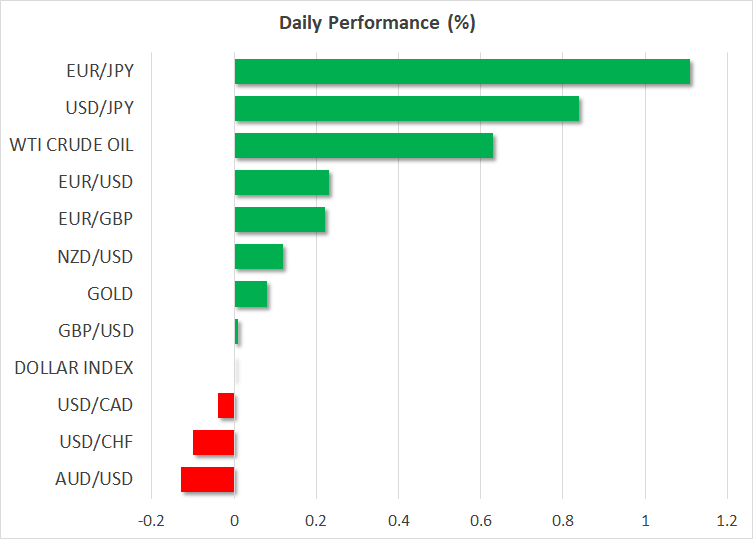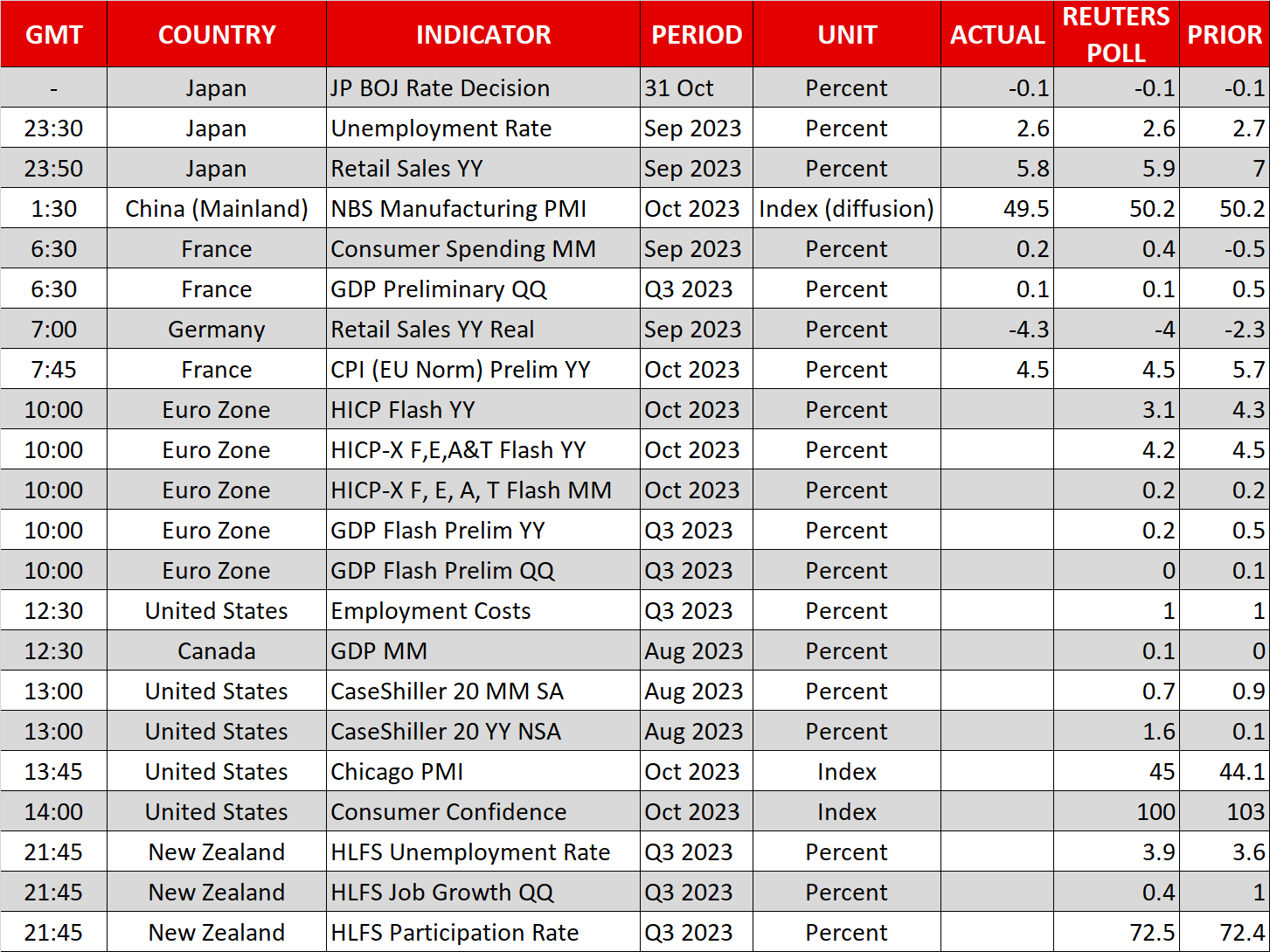[ad_1]
Financial institution of Japan adjusts yield curve management coverage once more, however yen skidsYields edge decrease after Treasury Division says will borrow much less in Q4Dollar blended, euro extends features, shares perk up

Yen not impressed by BoJ’s incremental moveThe Financial institution of Japan took one other step in the direction of coverage normalization on Tuesday, tweaking its yield curve management coverage (YCC) for the second time this yr amid indicators of broadening inflationary pressures. As anticipated, the Financial institution upped its inflation forecasts for the subsequent three fiscal years, with these for 2023 and 2024 seen above 2.0%.
This prompted policymakers to make an additional adjustment to their YCC coverage, elevating the reference level for concentrating on the 10-year JGB yield from 0.50% to 1.0%. Nevertheless, the BoJ didn’t specify a brand new higher certain, suggesting that it’s going to intervene within the bond market at its discretion each time the 10-year yield exceeds 1.0%, successfully eradicating the onerous cap.
With buyers already anticipating some type of a coverage change, there was a way of disappointment that immediately’s determination was simply one other minor tweak. The yen plummeted in opposition to the US greenback, which jumped again above the 150 stage. Hypothesis within the run as much as the assembly had pushed the yen to a two-and-a-half-week excessive of 148.79 per greenback on Monday. The yen suffered even greater losses in opposition to different majors such because the euro.
There’s a hazard, although, that markets are lacking the larger image with immediately’s announcement by not appreciating the importance of the higher onerous cap being deserted. The truth that the BoJ continues to keep up an easing bias is a serious drag on the foreign money, however there are many refined hints that Governor Ueda is steering coverage in the direction of an eventual exit from stimulus.
But, a bolder coverage shift is unlikely to return earlier than the 2024 spring wage negotiations as Ueda is pinning his hopes on large wage hikes subsequent yr to spice up inflation sustainably. So till then, merchants is probably not too satisfied by the BoJ’s incremental coverage changes.
Greenback weighed by softer US yields as euro climbsThe greenback was both flat or down in opposition to its different rivals on Tuesday, as Treasury yields headed decrease. There was aid yesterday when the US Treasury mentioned it’s going to borrow much less within the fourth quarter than it did within the earlier quarter. Nevertheless, borrowing is predicted to rise once more within the first quarter of 2024 so the aid on yields may solely be short-term.
The eased to one-week lows immediately and final stood at 4.835%, whereas Japan’s 10-year yield jumped to a brand new 10-year excessive of 0.962%, making immediately’s strikes in greenback/yen all of the extra shocking.
The euro was one of many strongest performers immediately, hitting a excessive of $1.067 earlier than easing barely after Eurozone GDP information missed expectations. The Eurozone economic system contracted 0.1% within the third quarter in response to the flash studying in opposition to estimates of flat progress. The flash CPI print additionally got here in under forecasts, falling to 2.9% in October from 4.3% beforehand.
Softer CPI information may really be aiding the euro as it might enable the ECB to chop charges sooner relatively than later, thereby decreasing the percentages of a extreme downturn.
The pound was modestly increased as merchants awaited the Financial institution of England’s coverage determination on Thursday, whereas the Australian greenback got here below strain following an surprising drop in China’s manufacturing PMI for October.
Gold consolidates regardless of ongoing Mideast tensionsGold costs have been making an attempt to reclaim the $2,000/oz stage on Tuesday after failing to shut above it yesterday. Because the warfare in Gaza rages on, there are few indications {that a} main escalation is imminent, even because the state of affairs stays extremely risky. Israel’s prime minister, Benjamin Netanyahu, has dominated out a ceasefire, saying that “it is a time for warfare”.
However, the dear steel seems to be consolidating this week, whereas the improved danger sentiment is lifting oil costs barely after sliding sharply yesterday.
European equities prolonged this week’s restoration, lifted by features of greater than 1% on Wall Road, though shares in Asia have been blended, with Chinese language indices closing decrease on the again of the weaker-than-expected manufacturing PMI.

[ad_2]
Source link





